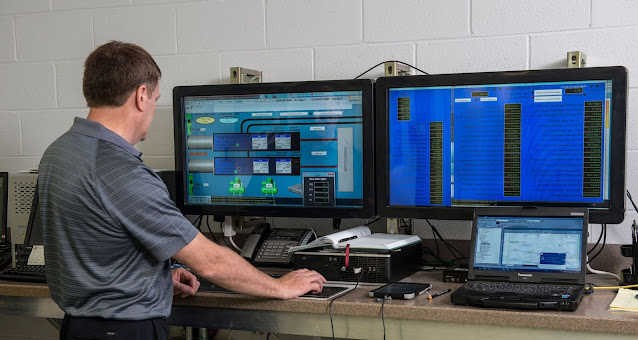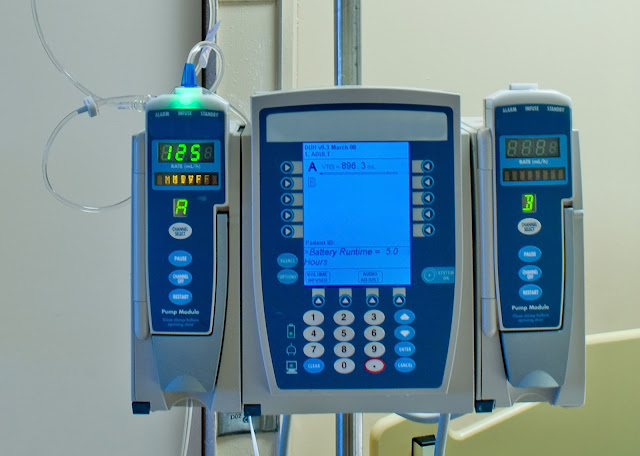Supervisory Control And Data Acquisition Used In Various Industries To Monitor And Control Industrial Processes
 |
| Supervisory Control And Data Acquisition |
Supervisory Control And Data
Acquisition (SCADA) is a system
used in various industries to monitor and control industrial processes. It
combines hardware and software components to collect and analyze real-time data
from remote devices, enabling operators to make informed decisions and control
the operations efficiently. SCADA systems are crucial in sectors such as
energy, water and wastewater management, oil and gas, transportation, and
manufacturing. The primary purpose of SCADA is to provide a centralized
platform for monitoring and controlling distributed systems. It typically
consists of three main components: a human-machine interface (HMI), remote
terminal units (RTUs) or programmable logic controllers (PLCs), and a
communication network. The HMI allows operators to visualize and interact with
the data collected from various field devices. RTUs or PLCs are responsible for
collecting data from sensors and actuators, as well as executing control
commands. The communication network facilitates the exchange of data between
the SCADA system and remote devices.
According To Coherent Market
Insights, The Size Of The Global Supervisory
Control And Data Acquisition Market,
Which Was Estimated At Us$ 9.99 Billion In 2022, Is Expected To Increase At A CAGR
Of 8.00% From 2023 To 2030.
One
of the key features of Supervisory
Control And Data Acquisition is real-time monitoring. It enables operators
to have a comprehensive view of the industrial processes, including parameters
like temperature, pressure, flow rate, and more. By monitoring these variables,
operators can identify anomalies, detect potential issues, and take corrective
actions promptly. SCADA systems also provide historical data storage and
trending capabilities, allowing for in-depth analysis and optimization of
processes over time. SCADA systems offer a range of control functionalities,
allowing operators to remotely control devices and equipment. For example, in a
power grid, operators can adjust the output of power plants, regulate voltage
levels, and manage the distribution of electricity. In water and wastewater
management, Supervisory Control And Data
Acquisition systems can control the flow of water, monitor tank levels, and
manage pumping stations. These control capabilities enhance the efficiency and
reliability of industrial processes, reducing manual intervention and improving
operational safety.
The
concept of the Internet
Of Everything (IoE) is an expansion of the Internet of Things (IoT). IoE
considers the networked connection between people, processes, data, and
objects, whereas Internet of objects (IoT) concentrates on connection between
machines, i.e., machine-to-machine communication.
Moreover,
Supervisory Control And Data Acquisition
systems are equipped with alarm and event management features. They can
generate alarms based on predefined thresholds or abnormal conditions, alerting
operators to potential problems. Alarms can be visual, audible, or sent as
notifications to mobile devices, ensuring timely response and minimizing
downtime. Events such as equipment failures, power outages, or security
breaches are also logged, allowing for analysis and troubleshooting. In recent
years, SCADA systems have evolved to incorporate advanced technologies such as
cloud computing, big data analytics, and the Internet of Things (IoT).
Cloud-based SCADA solutions provide scalability, flexibility, and remote
accessibility, enabling operators to monitor and control processes from
anywhere at any time.
You Can Also Read Press Release: Https://Www.Coherentmarketinsights.Com/Press-Release/Supervisory-Control-And-Data-Acquisition-Scada-Market-To-Surpass-Us-4714-Billion-By-2026-1122


Comments
Post a Comment